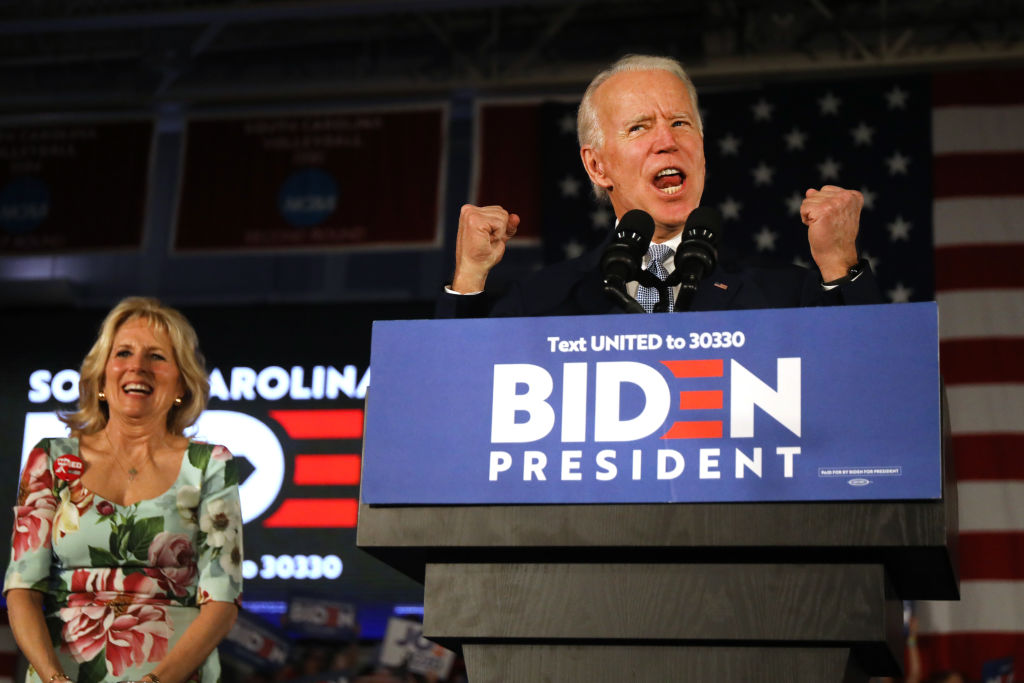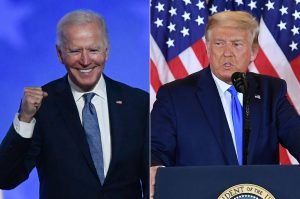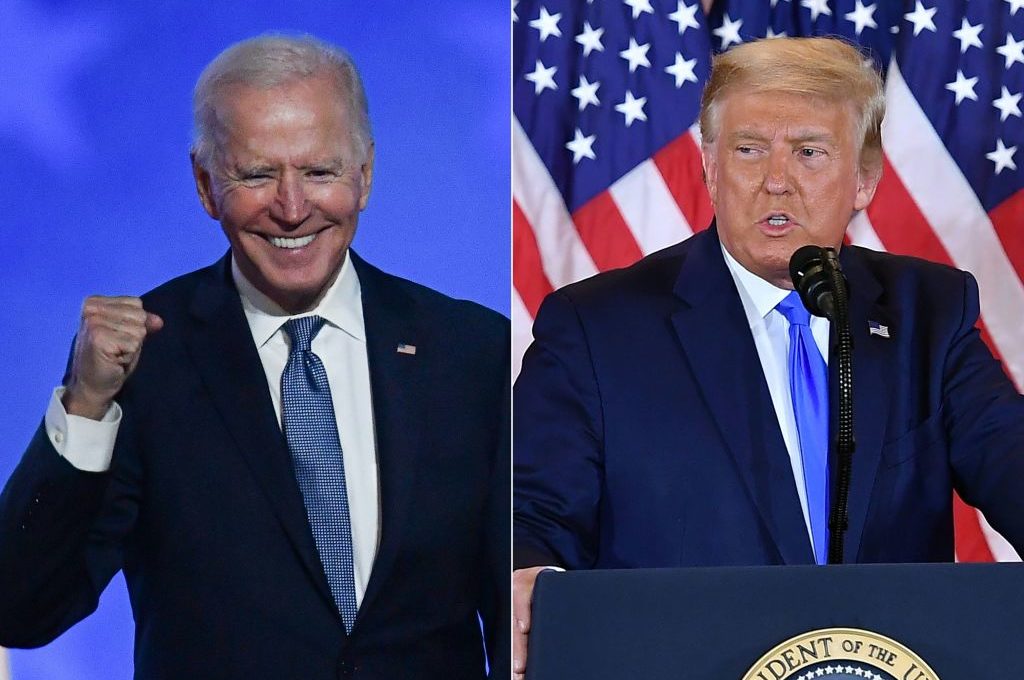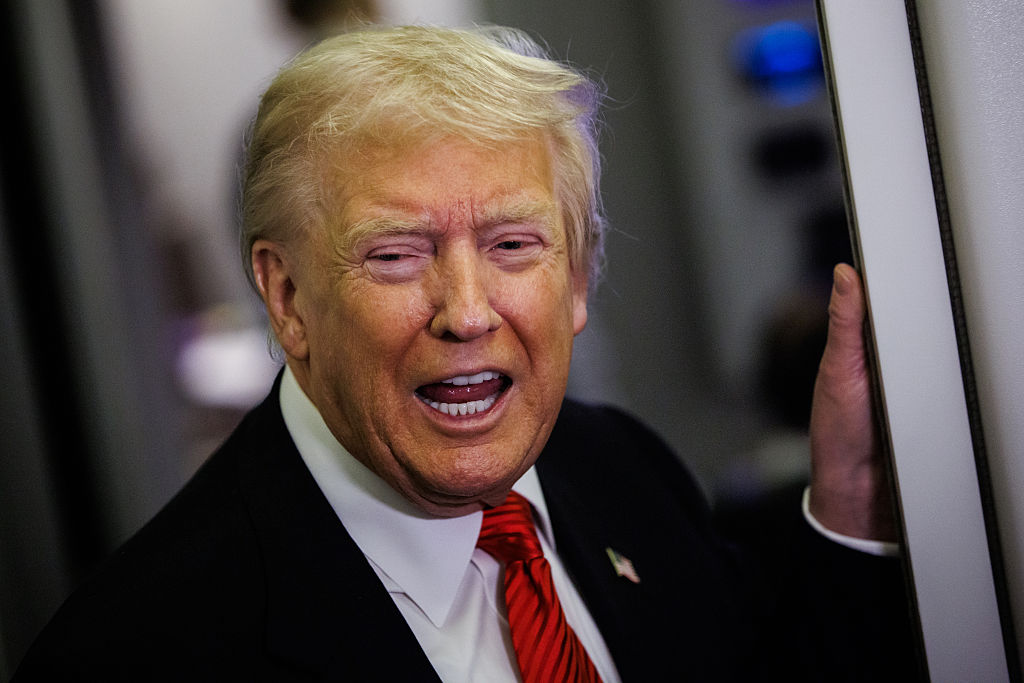Bernie Sanders just lost his first primary of 2020. He’ll lose a few more on Tuesday. But as of now, in terms of delegates and polling alike, Bernie Sanders remains the Democratic front-runner. And Joe Biden has wound up, ironically, not as the frontrunner but as the ‘Stop Bernie!’ candidate. South Carolina was Biden’s first primary win in any of the presidential races he’s ever run, which stretch back to 1988. He’s had his eye on the White House for a very long time, and voters have consistently found other Democrats more compelling — other Democrats like Michael Dukakis, not just other Democrats like Barack Obama. His victory in the Palmetto State arguably owes more to Obama than to Biden’s own skill and appeal as a politician: here for the first time Biden’s association with Obama was enough to win a state, thanks not only to the higher proportion of African American voters than in earlier contests but also to the older skew of the turnout in South Carolina this year. This is a problem for Biden: the formula that worked in South Carolina, the appeal to nostalgia for the first black president, isn’t going to be enough in California next Tuesday. And Biden is not running on any kind of future-oriented platform: he’s not out in front of his party on healthcare policy or foreign policy or anything else. To the extent that something other than pure nostalgia was fueling his campaign, it was the assumption that he would be the strongest contender against Donald Trump in November. But lately polls have shown Sanders performing as well or better than Biden, and in Pennsylvania a recent poll had him only tied with Trump. Biden is not the safe electoral bet that his campaign was built upon taking for granted. His big South Carolina win is a resurrection, but Biden needs a new narrative, something other than the ex-VP of the black president and something other than the surest guy to beat Trump. The obvious new role for him to adopt is the guy who can stop Bernie Sanders—the last, best hope for a Democratic party that isn’t a Democratic Socialist party. He’s the last samurai of the Clinton-Obama shogunate that sprang from the ruins of the Dukakis wipeout in 1988. But of course, Biden is also someone who in the prime of his life, over 30 years ago, lost to Dukakis. And the Clinton dynasty itself lost to Trump. Is Joe Biden really a better candidate than Hillary Clinton? Nobody thought so in 2008, when she trounced him in the primaries, and even in 2016 his decision not to run was almost certainly based on the correct judgment that he couldn’t beat her. Will Trump be weaker in 2020 than he was in 2016, faced with an historically weaker representative of the Democratic establishment than Hillary Clinton was? Biden’s original pitch for the 2020 nomination was that he would win the white working-class districts that gave Trump his margin in places like Pennsylvania, Michigan, and Wisconsin. But Biden’s primary performance in Iowa and New Hampshire belies the idea that white voters are his strength. And as strong as his South Carolina performance shows him to be with black voters, he won’t be anywhere near as strong as Barack Obama himself was — just as Hillary Clinton wasn’t in 2016. This is a recipe for losing to Trump.The Democratic establishment believes that Bernie Sanders is even more likely to lose to Trump, however. It paints Sanders as the second coming of George McGovern, and if anything Sanders is well to the left of the party’s 1972 nominee. Sanders will drag congressional Democrats down to defeat along with him, the establishment warns. So the party has to rally around an anti-Bernie, and Biden must suffice for that role. With the distracting Tom Steyer gone, the fact that the other non-Bernies in the race won’t drop out until after Super Tuesday may actually help Biden: after all, Klobuchar and Warren are the only real chance the establishment has to stop Bernie from winning Minnesota and Massachusetts. Michael Bloomberg, meanwhile, made a fatal mistake by participating in the presidential debates ahead of primaries in which he wasn’t even competing. He sapped momentum from Biden and blew him out of the water with advertising spending. But Bloomberg’s embarrassing debate performances, especially when attacked by Elizabeth Warren over his treatment of women who have worked for his companies, made the titan of television advertising look like a Lilliputian as an actual candidate. Pundits who said the other candidates were strategically unwise to focus their criticisms on Bloomberg, rather than Sanders, in the least two debates were wrong: if Bloomberg hadn’t been taken down as hard as he was, he would have been the obvious anti-Sanders champion for centrist Democrats. Only by kneecapping him first could anyone else’s effort to take down Sanders begin.Yet success in nominating an anti-Sanders and then electing an anti-Trump might come at a higher cost than establishment Democrats realize. Blocking Sanders with Biden is tantamount to writing off the Democratic party’s own youth activist wing. No one Biden could pick as his running mate would have the pull with the left-wing youth that Sanders has. And beating Trump in November will put Democrats in the awkward position of having to govern without the two-chamber congressional majorities and the massive popular mandate that Barack Obama came into office with in 2009. With Congress fully in his party’s hands and with Obama himself notably charismatic and popular, what did the Democratic party achieve? It passed the Affordable Care Act, which became a millstone around the party’s neck in the next two midterm elections — it failed to energize the left, which recognized it as a sellout to the insurance companies, even as it mobilized and unified the right, which had previously been splintered and demoralized by the George W. Bush record. Obama’s signature moves in foreign-policy also failed to improve the political calculus for Democrats: the Iran deal and moves toward diplomatic normalization with Cuba courted a backlash from the right, while Obama failed to use his political capital to close Guantanamo or end the Afghanistan War, as he had promised to the left (and indeed to the whole country). Obama’s personal popularity covered for the political deficiencies of his agenda — though not well enough for Democrats to keep the House in 2010 or hold onto the Senate in 2014 — but Biden won’t have that going for him. His personality has failed even to excite Democratic primary voters. The New York Times has noted that Bernie Sanders has also fallen short in his promises to bring new voters in the Democratic party: but if Sanders has disappointed, how much more disappointing is the guy who until now has lost to Sanders (and to Buttigieg and Warren, too)?The establishment will celebrate if Biden can stop Sanders, and all Democrats will rejoice if Biden beats Trump in November. But what comes after that will be a reckoning for the zombie Clinton party, inexorably pulled to the left, as it will be, by a disaffected Sanders wing, while the right experiments with new combinations of Trumpism and tea-party populism. In a match-up between Trumpism without Trump and Obamaism without Obama, a unified opposition Republican party and a divided Democratic party in government trying to be both centrist and left, the strategic advantage will belong to the GOP. The outcomes of the 2010, 2014, and 2016 elections all suggest as much — and in 2022, things will be worse for President Biden’s Democrats.Republican voters in 2016 defied their party’s establishment and the gatekeepers of the conservative movement by nominating Trump, a seemingly wild bet that paid off when he defeated Hillary Clinton that November. Voters knew what the establishment did not: that the safe road led only to defeat, with another McCain or another Romney, or indeed defeat of another kind with another George W. Bush. The right and the Republican party only had a chance to break the cycle by daring to push forward with Trump. Democrats now face the same choice — play it safe with Joe Biden or take the risk of meeting the future with Bernie Sanders. South Carolina hasn’t told us which way the party will go, but we might know after next Tuesday.
His big South Carolina win is a resurrection, but Biden needs a new narrative, something other than the ex-VP of the black president and something other than the surest guy to beat Trump. The obvious new role for him to adopt is the guy who can stop Bernie Sanders—the last, best hope for a Democratic party that isn’t a Democratic Socialist party. He’s the last samurai of the Clinton-Obama shogunate that sprang from the ruins of the Dukakis wipeout in 1988. But of course, Biden is also someone who in the prime of his life, over 30 years ago, lost to Dukakis. And the Clinton dynasty itself lost to Trump. Is Joe Biden really a better candidate than Hillary Clinton? Nobody thought so in 2008, when she trounced him in the primaries, and even in 2016 his decision not to run was almost certainly based on the correct judgment that he couldn’t beat her. Will Trump be weaker in 2020 than he was in 2016, faced with an historically weaker representative of the Democratic establishment than Hillary Clinton was? Biden’s original pitch for the 2020 nomination was that he would win the white working-class districts that gave Trump his margin in places like Pennsylvania, Michigan, and Wisconsin. But Biden’s primary performance in Iowa and New Hampshire belies the idea that white voters are his strength. And as strong as his South Carolina performance shows him to be with black voters, he won’t be anywhere near as strong as Barack Obama himself was — just as Hillary Clinton wasn’t in 2016. This is a recipe for losing to Trump.The Democratic establishment believes that Bernie Sanders is even more likely to lose to Trump, however. It paints Sanders as the second coming of George McGovern, and if anything Sanders is well to the left of the party’s 1972 nominee. Sanders will drag congressional Democrats down to defeat along with him, the establishment warns. So the party has to rally around an anti-Bernie, and Biden must suffice for that role. With the distracting Tom Steyer gone, the fact that the other non-Bernies in the race won’t drop out until after Super Tuesday may actually help Biden: after all, Klobuchar and Warren are the only real chance the establishment has to stop Bernie from winning Minnesota and Massachusetts. Michael Bloomberg, meanwhile, made a fatal mistake by participating in the presidential debates ahead of primaries in which he wasn’t even competing. He sapped momentum from Biden and blew him out of the water with advertising spending. But Bloomberg’s embarrassing debate performances, especially when attacked by Elizabeth Warren over his treatment of women who have worked for his companies, made the titan of television advertising look like a Lilliputian as an actual candidate. Pundits who said the other candidates were strategically unwise to focus their criticisms on Bloomberg, rather than Sanders, in the least two debates were wrong: if Bloomberg hadn’t been taken down as hard as he was, he would have been the obvious anti-Sanders champion for centrist Democrats. Only by kneecapping him first could anyone else’s effort to take down Sanders begin.Yet success in nominating an anti-Sanders and then electing an anti-Trump might come at a higher cost than establishment Democrats realize. Blocking Sanders with Biden is tantamount to writing off the Democratic party’s own youth activist wing. No one Biden could pick as his running mate would have the pull with the left-wing youth that Sanders has. And beating Trump in November will put Democrats in the awkward position of having to govern without the two-chamber congressional majorities and the massive popular mandate that Barack Obama came into office with in 2009. With Congress fully in his party’s hands and with Obama himself notably charismatic and popular, what did the Democratic party achieve? It passed the Affordable Care Act, which became a millstone around the party’s neck in the next two midterm elections — it failed to energize the left, which recognized it as a sellout to the insurance companies, even as it mobilized and unified the right, which had previously been splintered and demoralized by the George W. Bush record. Obama’s signature moves in foreign-policy also failed to improve the political calculus for Democrats: the Iran deal and moves toward diplomatic normalization with Cuba courted a backlash from the right, while Obama failed to use his political capital to close Guantanamo or end the Afghanistan War, as he had promised to the left (and indeed to the whole country). Obama’s personal popularity covered for the political deficiencies of his agenda — though not well enough for Democrats to keep the House in 2010 or hold onto the Senate in 2014 — but Biden won’t have that going for him. His personality has failed even to excite Democratic primary voters. The New York Times has noted that Bernie Sanders has also fallen short in his promises to bring new voters in the Democratic party: but if Sanders has disappointed, how much more disappointing is the guy who until now has lost to Sanders (and to Buttigieg and Warren, too)?The establishment will celebrate if Biden can stop Sanders, and all Democrats will rejoice if Biden beats Trump in November. But what comes after that will be a reckoning for the zombie Clinton party, inexorably pulled to the left, as it will be, by a disaffected Sanders wing, while the right experiments with new combinations of Trumpism and tea-party populism. In a match-up between Trumpism without Trump and Obamaism without Obama, a unified opposition Republican party and a divided Democratic party in government trying to be both centrist and left, the strategic advantage will belong to the GOP. The outcomes of the 2010, 2014, and 2016 elections all suggest as much — and in 2022, things will be worse for President Biden’s Democrats.Republican voters in 2016 defied their party’s establishment and the gatekeepers of the conservative movement by nominating Trump, a seemingly wild bet that paid off when he defeated Hillary Clinton that November. Voters knew what the establishment did not: that the safe road led only to defeat, with another McCain or another Romney, or indeed defeat of another kind with another George W. Bush. The right and the Republican party only had a chance to break the cycle by daring to push forward with Trump. Democrats now face the same choice — play it safe with Joe Biden or take the risk of meeting the future with Bernie Sanders. South Carolina hasn’t told us which way the party will go, but we might know after next Tuesday.
Biden’s Pyrrhic victory
Blocking Sanders with Biden is tantamount to writing off the Democratic party’s own youth activist wing

Joe Biden celebrates his win with his wife Jill in South Carolina
Bernie Sanders just lost his first primary of 2020. He’ll lose a few more on Tuesday. But as of now, in terms of delegates and polling alike, Bernie Sanders remains the Democratic front-runner. And Joe Biden has wound up, ironically, not as the frontrunner but as the ‘Stop Bernie!’ candidate. South Carolina was Biden’s first primary win in any of the presidential races he’s ever run, which stretch back to 1988. He’s had his eye on the White House for a very long time, and voters have consistently found other Democrats more compelling — other Democrats…
Comments
Share
Text
Text Size
Small
Medium
Large
Line Spacing
Small
Normal
Large
























